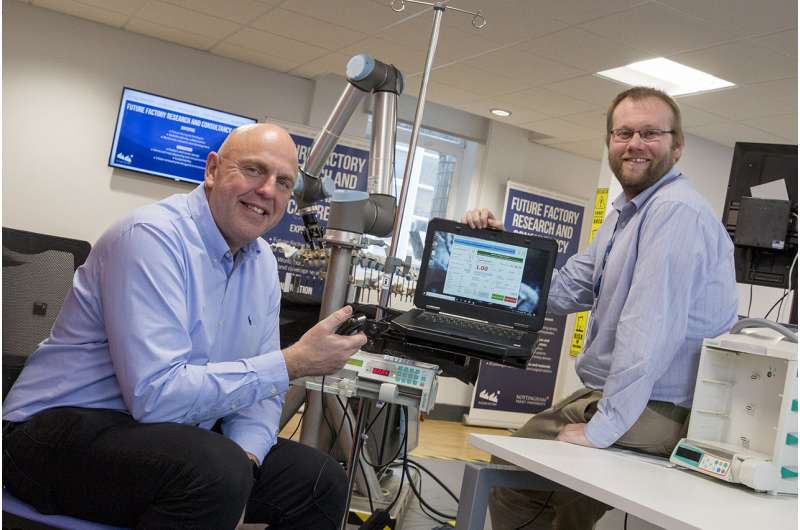Patients to control their own sedation during operations

Patients undergoing operations while awake will control their own levels of anxiety thanks to new research.
At the touch of a button, patients will administer doses of intravenous sedation whenever they feel nervous on the operating table.
The aim is to allow patients to individualise their experience of surgery by putting them in control of how awake or sleepy they want to be. The technology may also allow for swifter recovery times by reducing exposure to the drug's side effects.
The technology would make it impossible for patients to under or overdose themselves as minimum and maximum limits are set. An anaesthetist would remain in the operating theatre observing the patient at all times.
The project is led by Nottingham University Hospitals NHS Trust in collaboration with product design researchers at Nottingham Trent University (NTU). NTU was awarded more than £376,000 by National Institute for Health Research (NIHR) to develop the hardware and software for the project.
Professor Philip Breedon, who leads Nottingham Trent's Medical Design Research Group, said: "Undergoing surgery can be a worrying experience so patients are sedated. Propofol is very effective but, like many drugs, it has side effects that can prolong recovery.
"By putting the control of drug delivery directly into a patient's hand, less propofol can be used without compromising the patient's comfort, which we expect will lead to swifter recovery times."
Nottingham Trent research fellow Dr. James Sprinks, who is developing the technology, said: "Because there's no real way of knowing how anxious a person feels, anaesthetists often err on the side of caution and have to administer larger doses to ensure that operations run smoothly.
"But this technology will help ensure that patients receive more suitable doses. It will also make patients feel more in control and anaesthetists will be provided with live data on how much the patient is taking."
Ahead of the development of the technology, 25 patients at Nottingham University Hospitals NHS Trust took part in an initial study of the technique. Results showed these patients were able to choose how awake or sleepy to be for surgery and needed less propofol than if an anaesthetist alone had been in control of the sedation.
Different patients also took the drug at different points of their operation. People who felt anxious before the operation tended to use more at the start. Those who felt relaxed at the beginning tended to ask for more propofol later on, say the researchers.
Principal investigator Dr. Nigel Bedforth, consultant anaesthetist at Nottingham University Hospitals NHS Trust, said: "This is a pioneering project which could have a huge impact on the way operations involving conscious patients are undertaken around the world.
"It shows that by working in collaboration can we develop new technologies and introduce new anaesthetic techniques which help improve the experience of patients undergoing surgery."
The research has focussed on orthopaedic operations, such as for knee and hip replacements.
Dr. David Hewson, Anaesthetic Registrar at Nottingham University Hospitals NHS Trust, said: "In the future this technology could be widened out to other forms of medical or surgical procedure which require patients to be awake.
"It could make a huge difference to the experience patients receive while also creating efficiencies for the NHS."



















